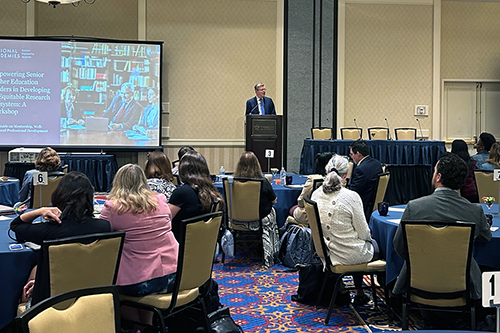
Taking Action for an Equitable Research Ecosystem
Senior higher ed leaders create plans to integrate mentorship, professional development and well-being
Back when Duke University’s president, Vincent E. Price, was a young graduate student at Stanford, he was invited to serve on a faculty search committee. “Having the chance to see how CVs were presented and how committees debated over potential candidates,” he recalled, “was so incredibly useful and powerful to me.”
Later, as a faculty member, Price benefited from the support of senior colleagues to assess how various opportunities in research, teaching and service might influence his future. “Every aspect of my own work has been influenced by very thoughtful colleagues and very generous mentors in ways both large and small,” he said.

Price shared these experiences at a recent Duke-hosted workshop organized by the National Academies of Sciences, Engineering and Medicine (NASEM) on developing an equitable research ecosystem. Graduate students, postdocs and faculty members often receive inconsistent access to effective mentorship and professional development, and their holistic well-being may not be addressed. How can academics ensure that all members of their research groups have what they need to thrive, and how can they be empowered to create positive changes at their institutions?
More than 90 senior leaders in higher education at institutions and funding agencies across the country took part in the day-long gathering in Durham, with an additional 200 leaders, faculty members, postdocs, students and staff joining online.
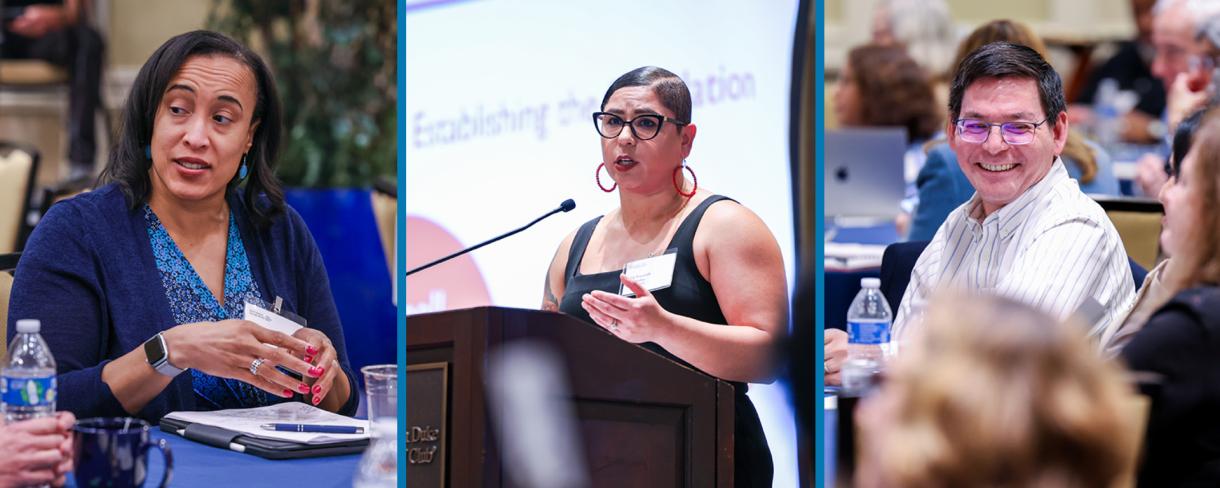
Participants heard from national experts on the importance of mentorship, professional development and well-being in higher education, and worked in groups to develop individualized plans with actionable goals to guide progress at their home institutions.
This workshop followed a national NASEM gathering last fall, which highlighted the need for leaders to have opportunities to build capacity and strengthen networks across institutions to create and sustain changes in key areas in higher education.
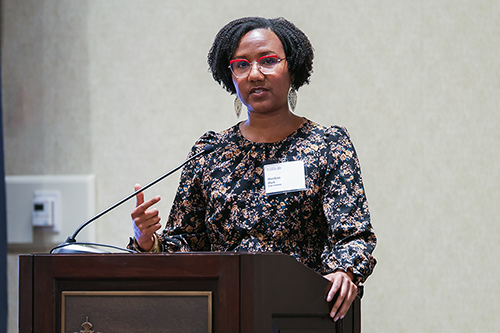
“This is a very unique opportunity to come together across institutions to learn from each other, to struggle through these issues together and to figure out ways we can begin to enact best practices and evidence-based work,” said Sherilynn Black, associate vice provost for faculty advancement at Duke and co-chair of NASEM’s Roundtable on Mentorship, Well-being, and Professional Development. “We as leaders have the agency, power, positionality and responsibility to move systems toward equitable practices.”
In addition to panels showcasing successful initiatives and breakout sessions allowing participants to reflect on issues at their own institutions, the workshop included a framing conversation by Julie Posselt, professor of education and associate dean of the Graduate School at the University of Southern California. Posselt spoke on the roles of organizational culture and learning in enacting institutional change, and how leaders can apply such theories into their regular practices with faculty, staff and students.
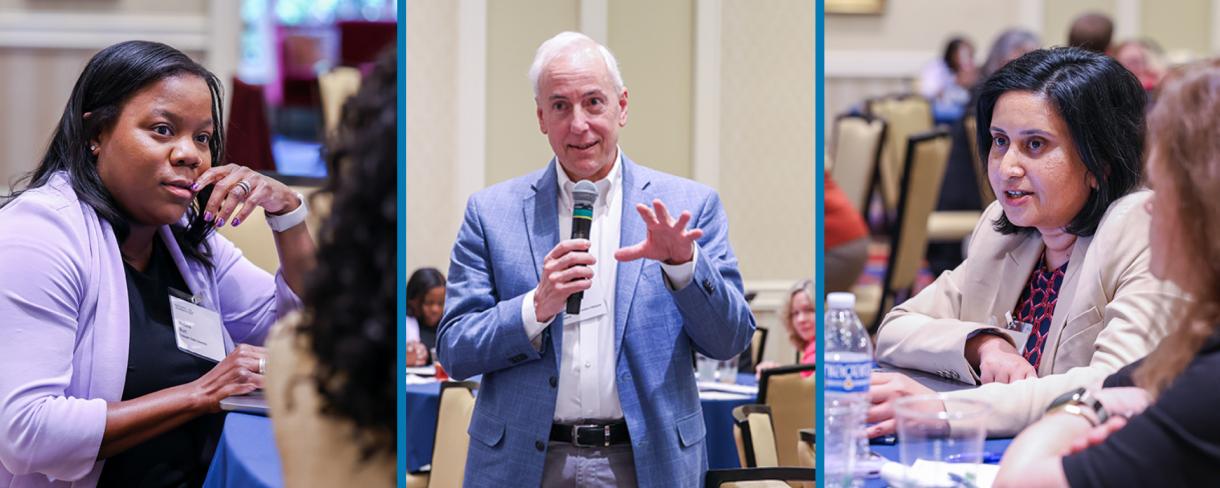
“We need to emphasize development when we’re talking about mentoring, lean into students who need it and not just treat it like supervision of the students who will be successful with or without our support,” Posselt said. “We owe it to ourselves, to each other and to the generations that follow us to think boldly and creatively and imaginatively.”
Posselt’s framing was followed by a keynote address on the practice of leadership from Ronald Heifetz, Hussein Bin Talal Senior Lecturer in Public Leadership and the founder of the Center for Public Leadership at the Kennedy School for Government at Harvard University.
“View leadership as a line of work, as a practice,” advised Heifetz. To tackle a problem, “tease apart which parts of it are technical and which parts are adaptive” and “treat each according to its need.” Finally, “distinguish leadership from authority and realize that people can practice leadership without authority.”
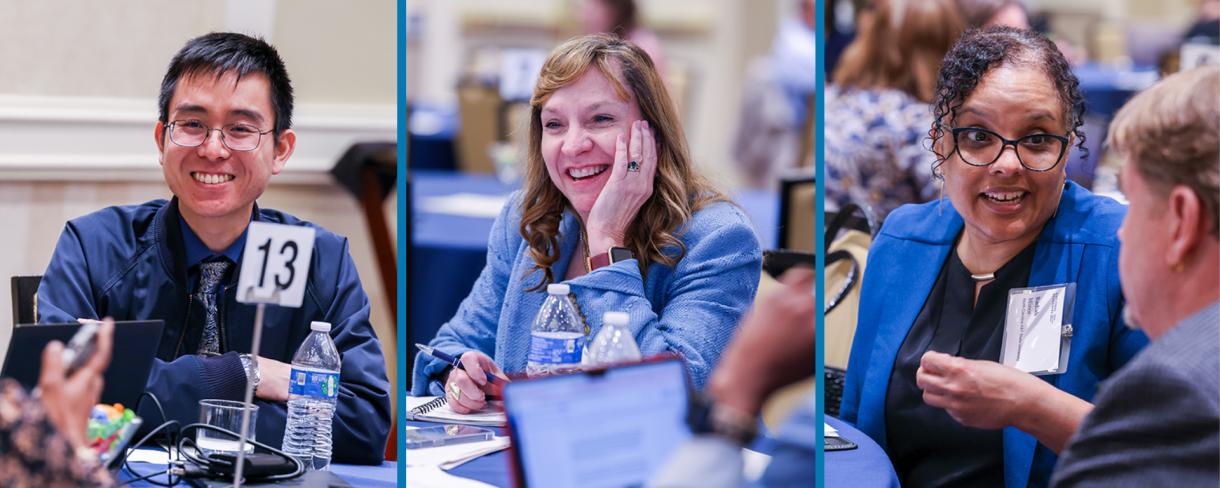
Advancing equity isn’t easy, even for highly experienced academic leaders. Duke’s provost, Alec Gallimore, encouraged participants to maintain their commitment to this work despite the challenges. “It is your job to make this a priority, to develop an action plan and to bring your team along,” he noted. “But look around you. You’re not alone.”
The day concluded with senior leaders sharing their plans to address challenges at their institutions and identifying the important first step they must take to begin the process of leading toward positive change. They left the meeting equipped with new ideas, empowered with practical resources curated by national scholars and an increased motivation to move forward. The NASEM Roundtable series will hold a final workshop in the fall.
The workshop recording and supporting documents are available on the NASEM website.